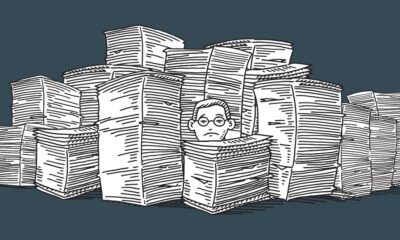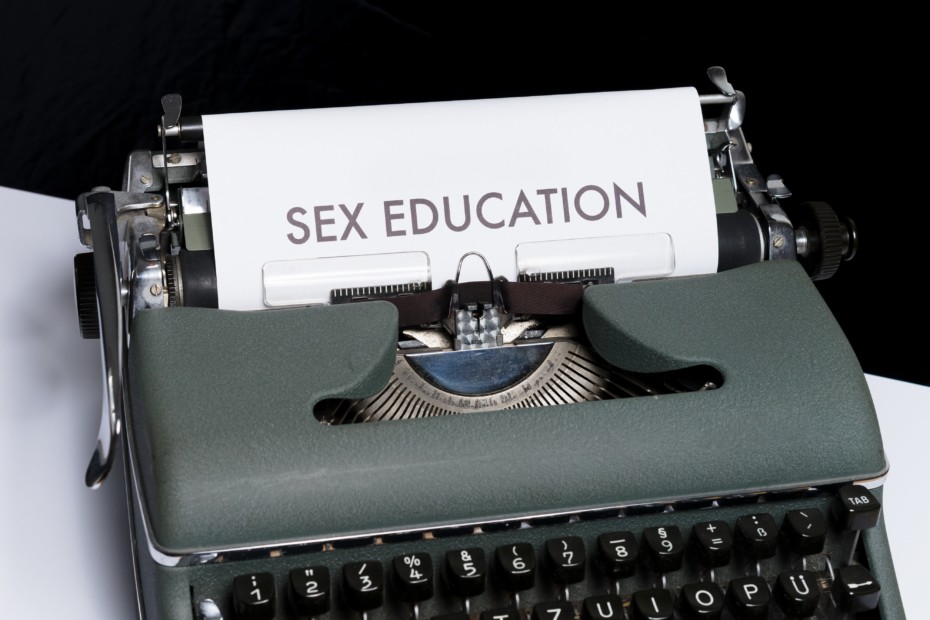
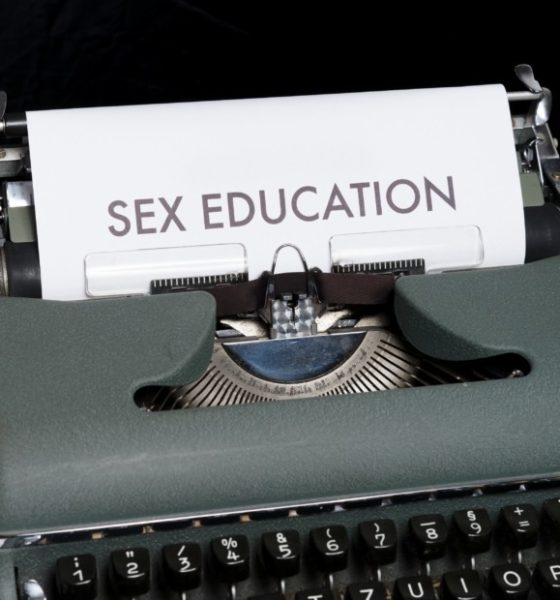
Society
Living in a country where there was ‘no sex’ in the past
The Republic of Moldova is a post-Soviet country. In the Soviet Union, nobody would have talked publicly about sex, there was no sex education in schools, most parents and children didn’t have open discussions on this topic. “The very mention of sex became objectionable, and the topic was absent not only from magazines (both for teenagers and adults), but even from the main Soviet encyclopedia. The idea was that children should be taught morality, and distracted and kept busy as much as possible. The thrust of sex education was to replace the nascent sexual interest with public work, physical education, reading, and to channel this energy in a different direction,” as it is mentioned in an article of Russia Beyond.
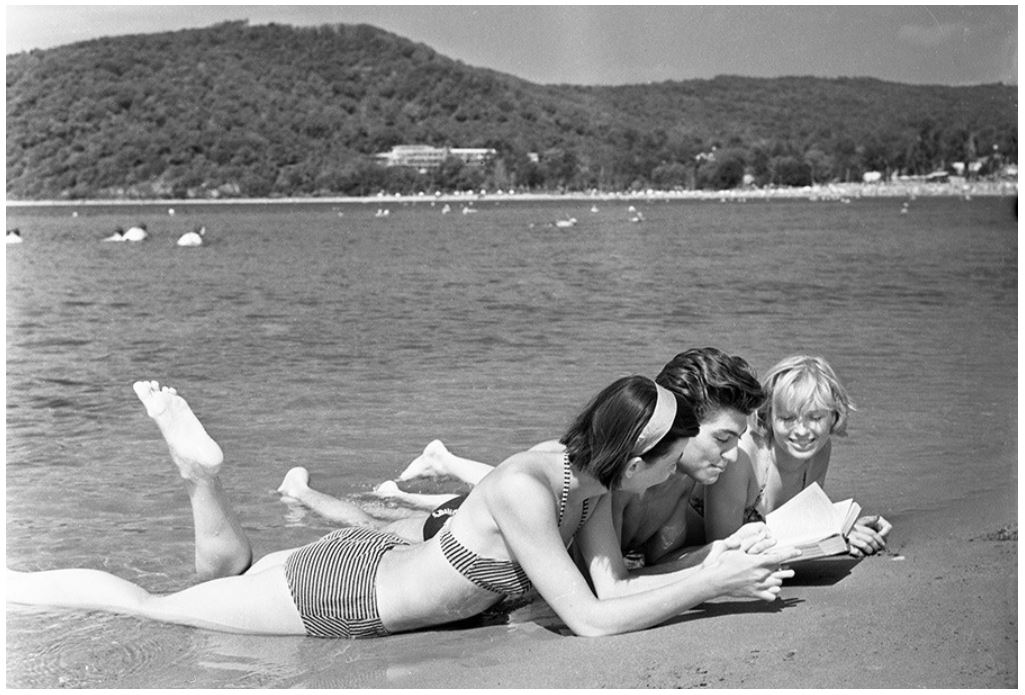
Source: Yevgeny Tikhanov/Sputnik
This whole situation evolved gradually into a society that can be very discriminatory or intolerant, full of fears and prejudices, being also influenced by shamefaced traditions and religious customs. This society gave birth to people who think that talking to your child about sex would arouse his desire for sex much earlier, persons (especially women and children) who never report domestic and sexual violence, beliefs that religion and sex education can’t fit together in the school curriculum.
Still, the data regarding sexual violence, early childbirths, abortion rate , sexually transmitted infections (STIs) along with specialists’ opinions claim something else: being informed about all aspects of sex life and having a natural attitude towards sex helps to actually decrease the abuse and abortion rate, STIs, as well as early childbirth occurrence.
No sex education at home or at school
Sex education should begin at home, through discussions between parents and children of all ages, by openly answering questions and providing explanations of how things work, as specialists say.
In most cases, Moldovan parents are the ones who have the inhibition to talk about sex though, being confused about how to provide a ‘simpler’ explanation to their child. They borrow the pattern from their own parents: “you will find it out when you grow up.” Here is where most of discussions end. That is while children do not feel any shame regarding this topic (up to a certain age) and perceive things naturally.
Things get even worse at school where a warfare among groups of parents and teachers with different opinions have a fierce debate on why sex education is evil or not and why it contradicts to any of traditionalist values the Moldovan society has.
“Teenagers do not talk to their parents at home, because the latter are not correctly informed and are ashamed to discuss such topics. Neither such topics are discussed at school, so the internet becomes the main source of information,” explained Ana-Maria Odobescu, a 12th-grade student who is a sex education volunteer trainer.
In 2005, the Ministry of Education introduced a new course called “Life Skills”. The course was supposed to teach students what contraception, STIs, personal hygiene, proper nutrition, professional purposes, stress, drugs or basic human rights mean. However, the textbooks and the course weren’t included in the curriculum for too long, as the textbooks were withdrawn, and the course was cancelled. Parents and church representatives warned that protests would have been organised. “It promotes information about contraception and various perversions that mutilate children’s souls,” they said.
Truth is that the Moldovan society wasn’t prepared for such a radical change in the common mentality. It seems that even now it is not prepared yet. Nowadays, the most of Ministry’s work is done by NGOs or by some teachers who deliver training related to sex education in an informal manner. NGOs have implemented all sorts of projects and campaigns. However, they are occasional and cannot be delivered to every adolescent.
Such an organisation is Y-PEER Network of Peer Educators from Moldova. Their purpose is to develop useful knowledge, attitudes and skills among young people, in order for them to be able to protect their own health by being responsible. Today, there are over 100 trainers who deliver the course Sexual and Reproductive Health Education.
Talking about sex is a shame
Eugenia Smochina is a teacher of Romanian language and literature in Orhei who teaches students not only about poems and essays, but also about condoms, syphilis, intrauterine device birth control, abortion, STIs, etc. She is an example of teachers who change the youth mindset.
While teaching this course, she used to remember her own adolescence when no one prepared her for menstruation. “When I was a little girl, I never discussed with my mother on such topics. They were considered taboo in our society. I didn’t know what to do, what to use and from where to take it. I used a handkerchief, as a menstrual pad. I was ashamed to talk to my mother,” confessed Eugenia. After her first kiss at 17, due to the lack of sex education, Eugenia thought she had lost her virginity.
The teacher always makes sure that students can find menstrual pads and a box of condoms in the classroom locker.
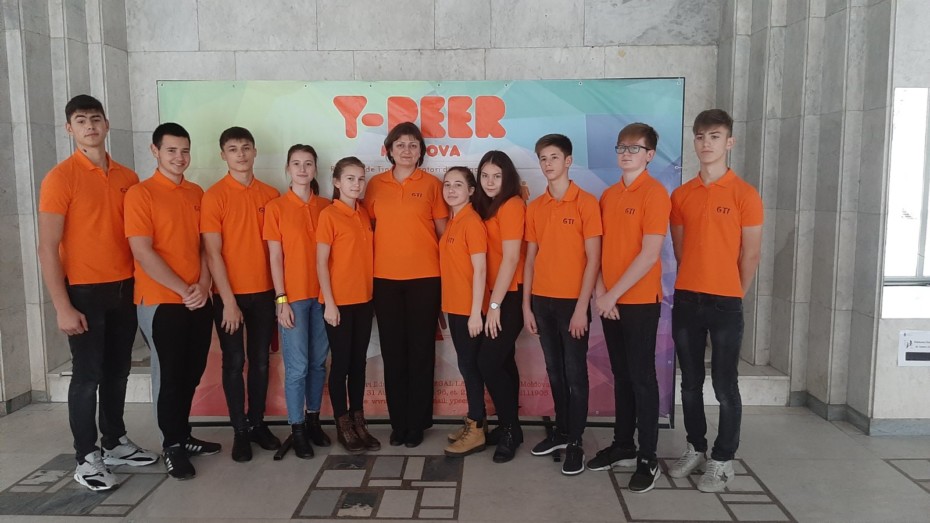
Eugenia Smochina and her students at a contest organized by Y-PEER| Source: Moldova.org
“Not so long ago, young women got married at the age of 16 and then they had to learn on their own. It was not healthy, but according to customs. Now, young women are different, but curiosity or other factors make them start their sexual life too early. Therefore, our mission is to inform them, so that they are more responsible and know how to protect themselves from unwanted pregnancies or sexually transmitted diseases,” declared Nelea Ursu, a school nurse from Cotiujeni village, Briceni district.
Briceni district is where the largest reduction in cases of early childbirths was recorded during the last years.
After 10 years of efforts of about 100 Y-PEER trainers, the Ministry of Education has introduced the optional course called “Health Education”. It includes 7-9 modules for the holistic development of young people, including mental and reproductive health, violence prevention, healthy eating and others.
22 000 teenagers (10%) applied for the optional course “Health education” in the 2018-2019 academic year.
The experience of other countries that have introduced sex education courses in the school curriculum shows that the number of pregnancies and abortions among adolescents is declining. The number of sexually transmitted infections among 15 to 24-year-old persons is also reducing. The number of HIV-infected young people of the same age is decreasing. Additionally, the number of sexual abuses and homophobia is diminishing.
The lack of sex education has consequences
In the meantime, there were 2196 girls aged under 19 who gave birth to children and 167 boys who became fathers in Moldova in 2018. Also, there were 645 abortions registered in 2018. These numbers significantly decreased as compared to 1998.
Although, it is twice as high as in other European countries. Experts say that it is the parents, society, the education system and migration that are to blame. According to national statistics, over 330 000 adolescents live in Moldova (12% of the population). Every third grows up without one or both parents. Most girls who become pregnant before they turn 19 come from dysfunctional families, from environments where there is verbal, physical or moral abuse, where one of the parents is physically or emotionally absent or where there is not much communication.
The situation is not very different when it comes to sexually transmitted infections. According to a report of several NGOs and institutions of the Republic of Moldova, 11.9% of the total infections with HIV were young people aged 15 to 24 years in 2017. Overall, 81.09% of all new cases from 2017 were cases of infection through sexual contact.
According to an OSCE study, two out of five women declared they have experienced physical or sexual violence since the age of 15 by a partner or non-partner. About 19% of women declared that they suffered sexual violence at least once in their life, as per the “Violence Against Women” report published by the National Bureau of Statistics in 2011.
See also: Violence against women in Moldova. Facts and figures
Domestic and sexual violence, high abortion rate, early childbirths, STIs, homophobia are just some problems of the Moldovan society that still persist due to patriarchal and traditionalist views, fear, lack of sex education, prejudices and stereotypes people have. Things can change for better, but only with open minds and a bit of courage.
Photo: Markus Winkler| Unsplash
Society
“They are not needy, but they need help”. How Moldovan volunteers try to create a safe environment for the Ukrainian refugees

At the Government’s ground floor, the phones ring constantly, the laptop screens never reach standby. In one corner of the room there is a logistics planning meeting, someone has a call on Zoom with partners and donors, someone else finally managed to take a cookie and make some coffee. Everyone is exhausted and have sleepy red eyes, but the volunteers still have a lot of energy and dedication to help in creating a safe place for the Ukrainian refugees.
“It’s like a continuous bustle just so you won’t read the news. You get home sometimes and you don’t have time for news, and that somehow helps. It’s a kind of solidarity and mutual support,” says Vlada Ciobanu, volunteer responsible for communication and fundraising.
The volunteers group was formed from the very first day of war. A Facebook page was created, where all types of messages immediately started to flow: “I offer accommodation”, “I want to help”, “I want to get involved”, “Where can I bring the products?”, “I have a car and I can go to the customs”. Soon, the authorities also started asking for volunteers’ support. Now they all work together, coordinate activities and try to find solutions to the most difficult problems.
Is accommodation needed for 10, 200 or 800 people? Do you need transportation to the customs? Does anyone want to deliver 3 tons of apples and does not know where? Do you need medicine or mobile toilets? All these questions require prompt answers and actions. Blankets, sheets, diapers, hygiene products, food, clothes – people bring everything, and someone needs to quickly find ways of delivering them to those who need them.
Sometimes this collaboration is difficult, involves a lot of bureaucracy, and it can be difficult to get answers on time. “Republic of Moldova has never faced such a large influx of refugees and, probably because nobody thought this could happen, a mechanism of this kind of crisis has not been developed. Due to the absence of such a mechanism that the state should have created, we, the volunteers, intervened and tried to help in a practical way for the spontaneous and on the sport solutions of the problems,” mentions Ecaterina Luțișina, volunteer responsible for the refugees’ accommodation.
Ana Maria Popa, one of the founders of the group “Help Ukrainians in Moldova/SOS Українці Молдовa” says that the toughest thing is to find time and have a clear mind in managing different procedures, although things still happen somehow naturally. Everyone is ready to intervene and help, to take on more responsibilities and to act immediately when needed. The biggest challenges arise when it is necessary to accommodate large families, people with special needs, for which alternative solutions must be identified.
Goods and donations
The volunteers try to cope with the high flow of requests for both accommodation and products of all kinds. “It came to me as a shock and a panic when I found out that both mothers who are now in Ukraine, as well as those who found refuge in our country are losing their milk because of stress. We are trying to fill an enormous need for milk powder, for which the demand is high and the stocks are decreasing”, says Steliana, the volunteer responsible for the distribution of goods from the donation centers.
Several centers have been set up to collect donations in all regions of Chisinau, and volunteers are redirecting the goods to where the refugees are. A system for processing and monitoring donations has already been established, while the volunteer drivers take over the order only according to a unique code.
Volunteers from the collection centers also do the inventory – the donated goods and the distributed goods. The rest is transported to Vatra deposit, from where it is distributed to the placement centers where more than 50 refugees are housed.
When they want to donate goods, but they don’t know what would be needed, people are urged to put themselves in the position of refugees and ask themselves what would they need most if they wake up overnight and have to hurriedly pack their bags and run away. Steliana wants to emphasise that “these people are not needy, but these people need help. They did not choose to end up in this situation.”
Furthermore, the volunteer Cristina Sîrbu seeks to identify producers and negotiate prices for products needed by refugees, thus mediating the procurement process for NGOs with which she collaborates, such as Caritas, World Children’s Fund, Polish Solidarity Fund, Lifting hands, Peace Corps and others.
One of the challenges she is facing now is the identifying a mattress manufacturer in the West, because the Moldovan mattress manufacturer that has been helping so far no longer has polyurethane, a raw material usually imported from Russia and Ukraine.
Cristina also needs to find solutions for the needs of the volunteer groups – phones, laptops, gsm connection and internet for a good carrying out of activities.
Hate messages
The most difficult thing for the communication team is to manage the hate messages on the social networks, which started to appear more often. “Even if there is some sort of dissatisfaction from the Ukrainian refugees and those who offer help, we live now in a very diverse society, there are different kind of people, and we act very differently under stress,” said Vlada Ciobanu.
Translation by Cătălina Bîrsanu
Important
#WorldForUkraine – a map that shows the magnitude of the world’s actions against Russian aggression

The international community and volunteers from all over te world have launched #WorldForUkraine as a platform that shows the magnitude of the world’s actions against the Russian aggression. In a digital world – it is an interactive map of public support of Ukrainians under the hashtag #WorldForUkraine – rallies, flash mobs, protests around the world. In the physical dimension – it is your opportunity to take to the streets and declare: “No to Putin’s aggression, no to war.”
„Today, along with the political and military support, emotional connection with the civilized world and truthful information are extremely important for Ukraine. The power to do it is in your hands. Join the #WorldForUkraine project and contribute to the victorious battle against the bloodshed inflicted on Ukraine by the aggression of the Russian Federation”, says the „about the project” section of the platform.
Go to the streets — Tell people — Connect and Unite — Become POWERFUL
Volunteers have launched #WorldForUkraine as a platform that shows the magnitude of the world’s actions against Russian aggression. In digital world – it is an INTERACTIVE MAP of public support of Ukrainians worldforukraine.net under the hashtag #WorldForUkraine – rallies, flash mobs, protests around the world. In the physical dimension – it is your opportunity to take to the streets and declare: “No to Putin’s aggression, no to war.” There you may find information about past and future rallies in your city in support of Ukraine. This is a permanent platform for Ukrainian diaspora and people all over the world concerned about the situation in Ukraine.
So here’s a couple of things you could do yourself to help:
* if there is a political rally in your city, then participate in it and write about it on social media with geolocation and the hashtag #WorldForUkraine
* if there are no rallies nearby, organize one in support of Ukraine yourself, write about it on social media with geolocation adding the hashtag #WorldForUkraine
The map will add information about gathering by #WorldForUkraine AUTOMATICALLY
Your voice now stronger THAN ever
All rallies are already here: https://worldforukraine.net
Important
How is Moldova managing the big influx of Ukrainian refugees? The authorities’ plan, explained

From 24th to 28th of February, 71 359 Ukrainian citizens entered the territory of Republic of Moldova. 33 173 of them left the country. As of this moment, there are 38 186 Ukrainian citizens in Moldova, who have arrived over the past 100 hours.
The Moldovan people and authorities have organized themselves quickly from the first day of war between Russia and Ukraine. However, in the event of a prolonged armed conflict and a continuous influx of Ukrainian refugees, the efforts and donations need to be efficiently managed. Thus, we inquired about Moldova’s long-term plan and the state’s capacity to receive, host, and treat a bigger number of refugees.
On February 26th, the Ministry of Labor and Social Protection of Moldova approved the Regulation of organization and functioning of the temporary Placement Center for refugees and the staffing and expenditure rules. According to the Regulation, the Centers will have the capacity of temporary hosting and feeding at least 20 persons, for a maximum of 3 months, with the possibility of extending this period. The Centers will also offer legal, social, psychological, and primary medical consultations to the refugees. The Center’s activity will be financed from budget allocations, under Article 19 of Provision no. 1 of the Exceptional Situations Commission from February 24th, 2022, and from other sources of funding that do not contravene applicable law.
The Ministry of Inner Affairs and the Government of Moldova facilitated the organization of the volunteers’ group “Moldova for Peace”. Its purpose is to receive, offer assistance and accommodation to the Ukrainian refugees. The group is still working on creating a structure, registering and contacting volunteers, etc. It does not activate under a legal umbrella.
Lilia Nenescu, one of the “Moldova for Peace” volunteers, said that the group consists of over 20 people. Other 1700 registered to volunteer by filling in this form, which is still available. The group consists of several departments:
The volunteers’ department. Its members act as fixers: they’re responsible for connecting the people in need of assistance with the appropriate department. Some of the volunteers are located in the customs points. “The Ministry of Inner Affairs sends us every day the list of the customs points where our assistance is needed, and we mobilize the volunteers”, says Lilia Nenescu.
The Goods Department manages all the goods donated by the Moldavian citizens. The donations are separated into categories: non-perishable foods and non-food supplies. The volunteers of this department sort the goods into packages to be distributed.
The Government intends to collect all the donations in four locations. The National Agency for Food Safety and the National Agency for Public Health will ensure mechanisms to confirm that all the deposited goods comply with safety and quality regulations.
The Service Department operates in 4 directions and needs the volunteer involvement of specialists in psychology, legal assistance (the majority of the refugees only have Ukrainian ID and birth certificates of their children); medical assistance; translation (a part of the refugees are not Ukrainian citizens).
According to Elena Mudrîi, the spokesperson of the Ministry of Health, so far there is no data about the number of Covid-19 positive refugees. She only mentioned two cases that needed outpatient medical assistance: a pregnant woman and the mother of a 4-day-old child.
The Accommodation Department. The volunteers are waiting for the centralized and updated information from the Ministry of Labor about the institutions offering accommodation, besides the houses offered by individuals.
The Transport Department consists of drivers organized in groups. They receive notifications about the number of people who need transportation from the customs points to the asylum centers for refugees.
The municipal authorities of Chișinău announced that the Ukrainian children refugees from the capital city will be enrolled in educational institutions. The authorities also intend to create Day-Care Centers for children, where they will be engaged in educational activities and will receive psychological assistance. Besides, the refugees from the municipal temporary accommodation centers receive individual and group counseling.
In addition to this effort, a group of volunteers consisting of Ana Gurău, Ana Popapa, and Andrei Lutenco developed, with the help of Cristian Coșneanu, the UArefugees platform, synchronized with the responses from this form. On the first day, 943 people offered their help using the form, and 110 people asked for help. According to Anna Gurău, the volunteers communicate with the Government in order to update the platform with the missing data.
Translation from Romanian by Natalia Graur












